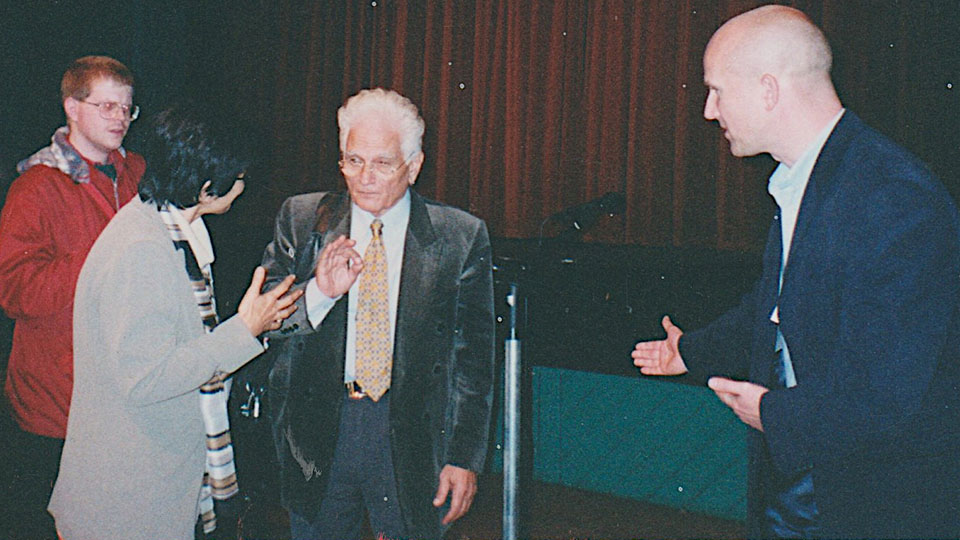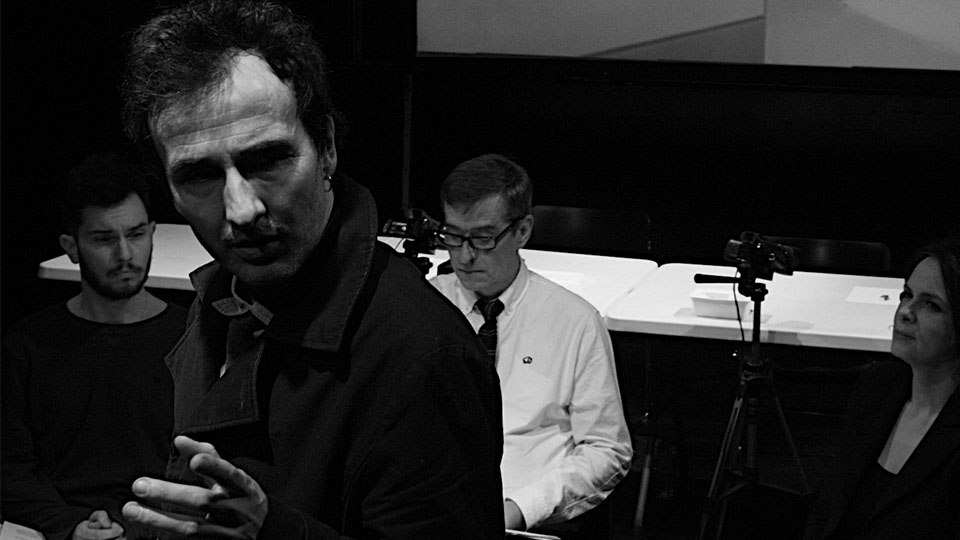In November 2001, Jacques Derrida, then the world's most famous philosopher, visited Loughborough to address over 300 people in the Sir Robert Martin Hall Theatre. It was an event attended by the Vice-Chancellor at the time, Sir David Wallace, and covered by The Independent newspaper.
It proved to be one of the last visits Derrida made to the UK, as he passed away in 2004.
Almost 20 years later, Loughborough's Dr Fred Dalmasso from the School of Design and Creative Arts has published, along with Professor John Schad (Lancaster University), the world’s first-ever stage play on Jacques Derrida. The play appears in Derrida | Benjamin. Two Plays for the Stage (Palgrave).

Image: Jacques Derrida and John Schad (Martin Hall, Loughborough University, November 2001) ©JSchad
Dr Dalmasso has not only co-authored the play but also directed it and acted in it, playing the part of Derrida himself. He first lent his voice to Derrida as part of Professor Schad's Inaugural Lecture at Loughborough in 2007. The play Derrida grew from there, being performed by collect-ifs, Dr Dalmasso’s own performance collective, in various venues across the UK, most notably the Sheldonian Theatre in Oxford.
The play, which is a thought-thriller, finds Derrida somewhere we would not quite expect to find him – not Loughborough in 2001, but Oxford in 1968. This, though, gradually becomes Berlin in 1930, which soon becomes Algiers in 1942, which soon becomes Nuremberg in 1946.
Derrida| Benjamin (Palgrave, 2021) is a volume that brings together two tragi-comic plays which mirror each other in a host of ways – above all, in the way that the central philosophical figure is exiled, or elsewhere – not quite himself. In Benjamin’s case, it is somewhere (or nowhere) near London in 1948 as Walter Benjamin’s words, life and death are set against the backdrop of a working-class council estate in post-war England.
The publication has received the following praise:
‘Haunting has no limit, it seems; or so we are reminded by these two remarkable plays. Both have moments of darkness and terror, but these are fundamentally comedies, made out of theory as Kafka made them out of theology. To read these plays is both to stage them in the mind and to long for actors and a material stage.’ - Michael Wood, Charles Barnwell Straut Class of 1923 Professor of English and Comp. Literature, Emeritus, Princeton University.
‘The genius of these plays is to eject the philosopher’s page-bound words into vocal performance, thus ripping them from contexts, splicing them in new ones, and refracting them amidst the whirls of large-scale historical events, and in dialogue with the intimate dramas of everyday love and loss, of people, contexts, memory and minds. That is to return them to life, as philosophy should be.’ - Esther Leslie, Professor of Political Aesthetics, Birkbeck, University of London.
For more information about the play, please visit the collect-ifs website.
